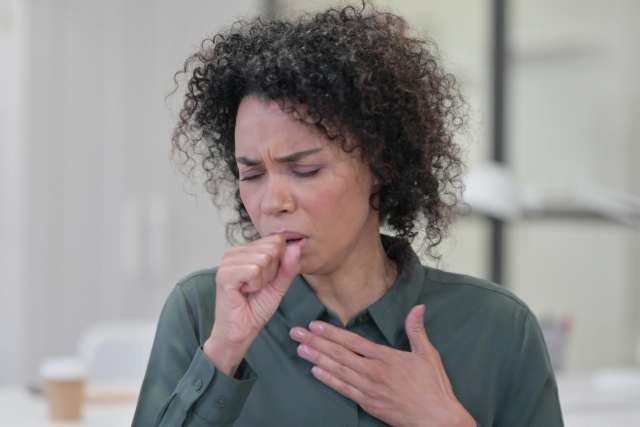Dear Doctors: I'm 54 years old and post-menopausal. I've had increasing issues with my lips for three years. At first, it felt like a persistent sunburn, and now my lips feel as if they are made of tissue paper. I'm otherwise healthy. Changing meds, including hormones, hasn't helped. What can this be?
Dear Reader: You have described one of the symptoms that can occur in a condition known as burning mouth syndrome. In addition to affecting the lips, it also often involves the mucosal tissues inside of the mouth. These include the gums, inner cheeks, roof of the mouth, tongue and throat.
Burning mouth syndrome can occur in anyone. However, it is seen more often in women than in men, particularly those experiencing perimenopause and menopause. Research suggests it affects menopausal women seven times as often as men, and that up to one-fifth of women in their 50s and older develop the condition.
People with the condition report that it feels as though the inside of their mouth or their tongue, particularly at the tip, is burning. Dry mouth, tingling, numbness and a sour or metallic taste are also common. So is dryness and fragility in the tissues of the lips, which you have described.
This condition is categorized by the pattern of someone's symptoms. In type 1, patients wake up symptom-free, but develop sensations as the day progresses. Type 2 is marked by persistent symptoms while awake, with occasional respite at night. In type 3, symptoms are intermittent and unpredictable.
The collection of symptoms associated with burning mouth syndrome are consistent with other conditions, such as an autoimmune disorder or a fungal infection. And because there is no specific test for burning mouth syndrome, it becomes a diagnosis of exclusion. That means tests for the other conditions that fit the symptoms must be conducted. If those results turn out to be negative, then the process of elimination may eventually lead to a diagnosis of burning mouth.
Although the hormonal fluctuations that occur during perimenopause and menopause are suspected to play a role in this condition, the specifics of how and why they affect the mucosa of the mouth are not yet clear. One avenue of inquiry suggests that these ongoing hormonal shifts may cause the pain receptors in the mouth to become hypersensitive. Immune function, stress, anxiety, nutritional deficiencies and nerve damage are also considered to be possible triggers. A number of clinical trials in research facilities located throughout the world are currently looking into potential triggers for the condition, and also at treatments.
Absent a clear cause, treatment focuses on managing each person's specific collection of symptoms. For those with persistent dry mouth, saliva-replacement products can be helpful. Medications to reduce symptoms include certain numbing agents, topical creams and ointments, mouth rinses, certain antidepressants and hormone replacement therapy. For the sensations of heat or burning, the use of cooling agents, such as chilled water or ice chips, can provide a bit of relief. It is common for a doctor and a dentist to work together to arrive at a multifaceted treatment plan.
(Send your questions to [email protected], or write: Ask the Doctors, c/o UCLA Health Sciences Media Relations, 10960 Wilshire Blvd., Suite 1955, Los Angeles, CA, 90024. Owing to the volume of mail, personal replies cannot be provided.)





